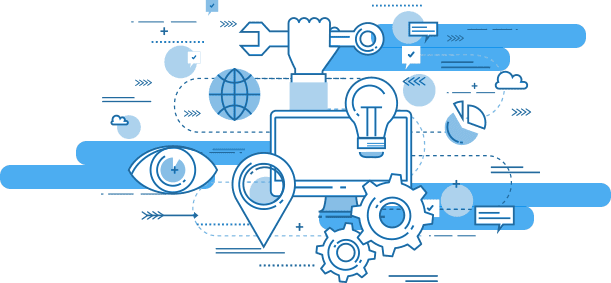
PROJECTS :
current and previous
WSF current projects
"Initiative on siltation of small harbour" (07/2023 - 12/2023)
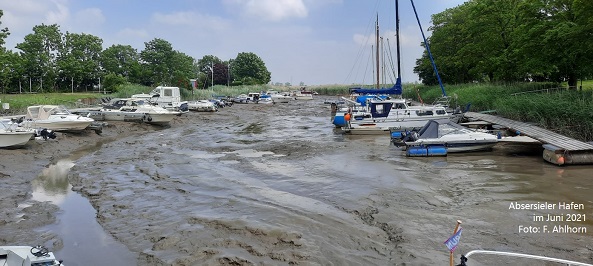
In July 2023, the pilot project on “Future-oriented contributions of small ports to increasing climate resilience in coastal regions - the example of recreational boat harbours” started. The project team consists of the Sailing Association Lower Saxony (project lead), Wadden Sea Forum (project work on stakeholder and dialogue), Sell-Greiser company (project work on system understanding) and the pilot harbours of Nordenham and Absen, lower Saxony, along the Weser.
The project is gratefully funded by the Lower Saxon Ministry for Environment, Energy and Climate Protection.
read more: WSF / topics / shipping / projects
"TrilaWatt" (01/2022 - 12/2024)
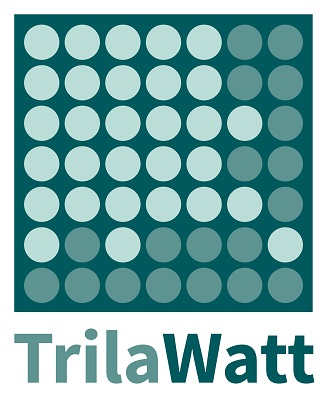
A digital hydro-morphological twin for the trilateral Wadden Sea (short: TrilaWatt) will be developed starting from January 2022 until December 2024.
According to the Open-data initiative of the German Federal Ministries, the main aim of this project proposal is to compile available datasets on sediment, geomorphology and hydrodynamic with respect to the trilateral Wadden Sea area. In this project, the WSF is cooperating with the German Federal Waterways Engineering and Research Institute (BAW, Lead partner) and two SMEʼs, i.e. smile Consult GmbH and planGIS GmbH, in order to compile these datasets and develop pilot cases. The project offer is to identify and take up selected cases based on stakeholder involvement on a trilateral level organised by the WSF. For example, these pilot cases could comprise investigations on topics such as accessibility of small Wadden Sea harbours, the development of the geomorphology in the Wadden Sea, which is linked to the OUVʼs, or the minimisation of disturbances of the World Heritage area potentially caused by maintenance work in fairways. Institutions and organisations throughout the WSR announced their support to the consortium such as Danish Coastal Authority (DCA, DK), LLUR (SH), NLWKN (Nds), Rijkswaterstaat (NL) and on the trilateral level the CWSS (with respect to TMAP), which guarantee data availability and the demand on cooperation for jointly working on these topics in the entire Wadden Sea area.
Shortly, the WSF’s task in this project is to
- Conduct the trilateral stakeholder analysis
- Conduct and support the data acquisition for sediment, geomorphological and hydrodynamic data
- Identify pilot studies in the trilateral Wadden Sea area
- Support the dissemination of results, findings and insights
More information at WSF / Projects / TrilaWatt and www.trilawatt.eu.
Link to German UIS workshop 11-13 May 2022 regarding data systems.
WSF previous projects

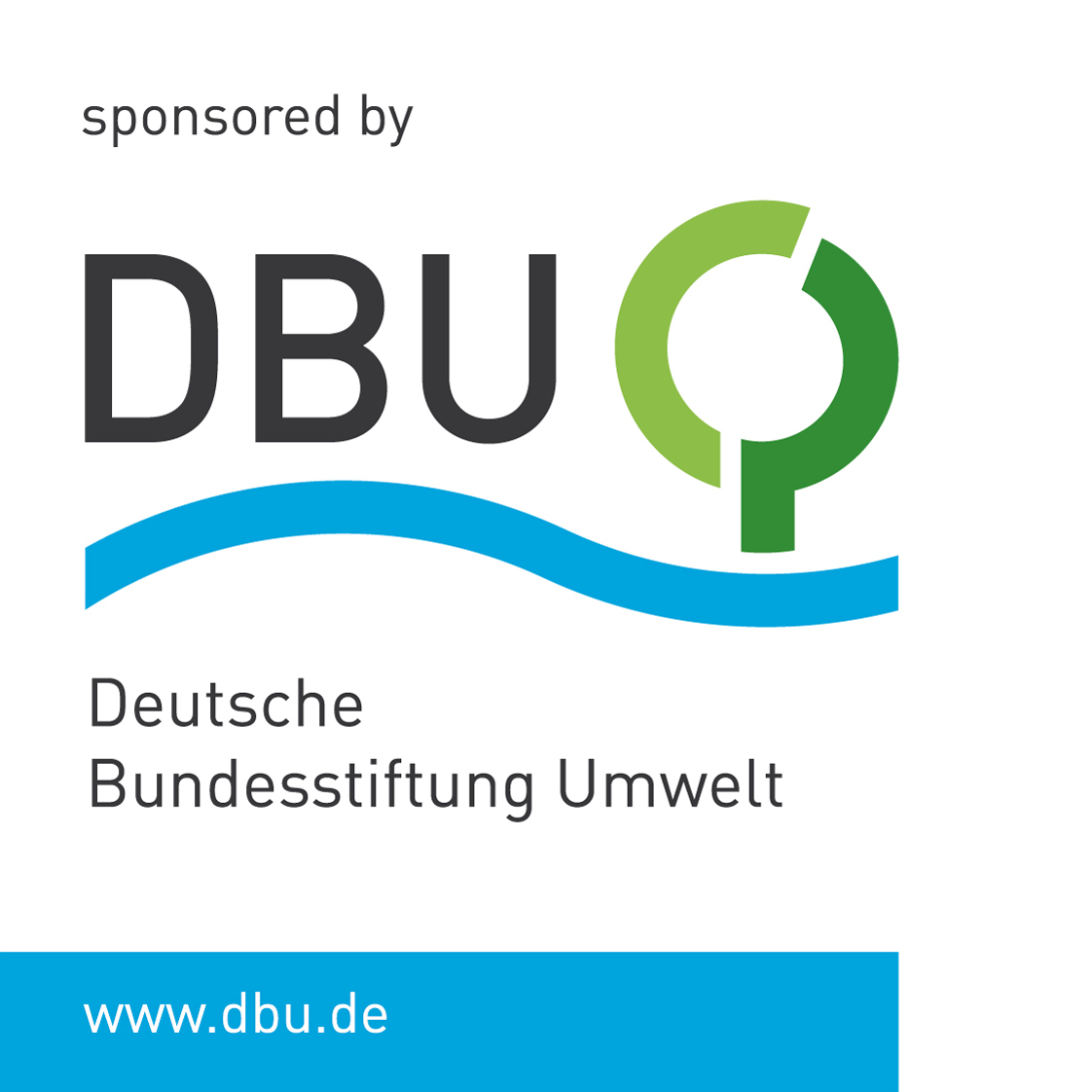
Sustainable shipping in the trilateral Wadden Sea
As lead partner, the WSF submitted the joint project proposal to the DBU (Deutsche Bundesstiftung Umwelt, German Federal Environmental Foundation) and it was finally approved in November 2021. The long project title is “Development of cross-sectoral and multi-stakeholder concepts for sustainable shipping in the trilateral Wadden Sea”. The main aim of this project is to work jointly on a dialogue platform in order to set-up a multi-stakeholder network dealing with shipping and harbours in the World Heritage site Wadden Sea. The consortium consists of representatives from the WSF member WHV e.V., the Wadden Sea Team and further green NGOʼS working ion the WSR, the Wadden Sea Ports and the Water Police Inspection Oldenburg.
Download the full report: coming soon
Duration: November 2021 - May 2023
Partner: WSF, BUND-Bund für Umwelt und Naturschutz Deutschland, KIMO Denmark, DN-Danmarks Naturfredningsforening
read also: WSF/Topics/Shipping and Link to website of our project partner BUND

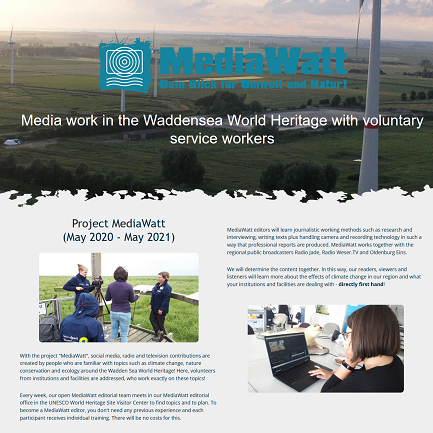
MediaWatt - Media work in the Waddensea World Heritage with voluntary service workers
With the project "MediaWatt", the WSF wants to increase its focus on youth media work and bring issues related to climate change and its consequences for the Wadden Sea World Heritage Site, as it is already visible and discussed in the region, to the public. Furthermore, it is important to raise the awareness of the population, especially of younger people, about changes and impacts on the region. At the same time, various topics are to be presented in a way that appeals to young people and opportunities for exerting influence will be presented in the media. By anchoring the media workplace (television and radio) at the UNESCO Wadden Sea World Heritage Visitor Centre in Wilhelmshaven, an adequate solution has been thought through for the period of the one-year voluntary service.
Download the full report: Abschlußbericht MediaWatt 2021-2022
Duration: May 2021 - May 2022
Partners: WSF, Oldenburg Eins, Radio Weser TV, Radio Jade, UNESCO-Weltnaturerbe Wattenmeer Besucherzentrum, Mellumrat e.V., Nationpark-Haus Dangast, Naturschutzstiftung Friesland-Wittmund-Wilhelmshaven, Gemeinsames Wattenmeer Sekretariat CWSS, Nationalparkverwaltung Niedersächsisches Wattenmeer
see more under topics/projects/mediawatt
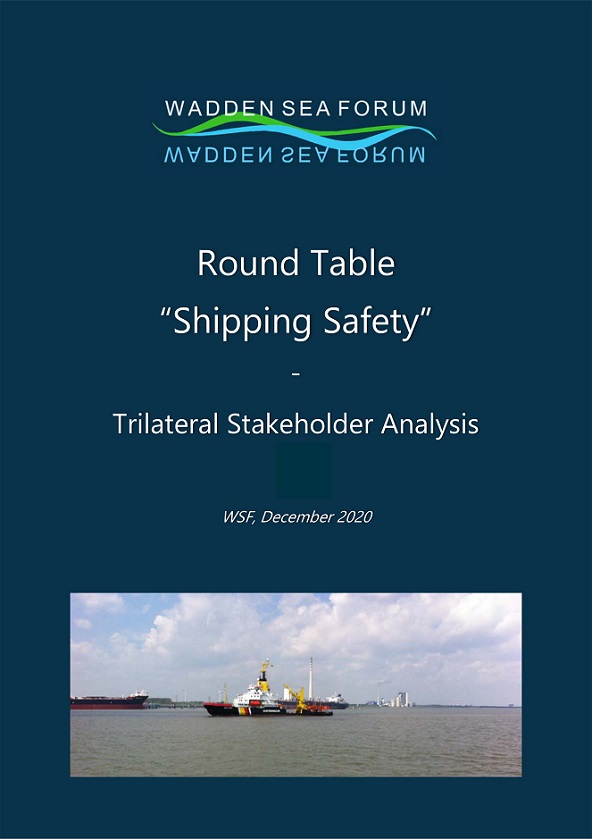
Round Table "Shipping Safety" - Trilateral Stakeholder Analysis
The Forum for the trilateral Wadden Sea Region was assigned to execute a comprehensive stakeholder investigation for the Lower Saxon Wadden Sea National Park Authority.
National and regional governments as well as the Wadden Sea Forum with its stakeholders were made aware of increasing concerns of the society of the Wadden Sea Region about negative impacts by the shipping business. Also the members of the Wadden Sea Advisory Board in Lower Saxony experienced in their sectors and municipalities an increasing concern and requested to take initiatives on improvements within the shipping business. Therefore, the Forum for the trilateral Wadden Sea Region with the support of the Wadden Sea Board as political body of the Trilateral Wadden Sea Cooperation is going to establish a Round Table on shipping. It is envisaged ...
Download the full report: here from our reports
Duration: 2020
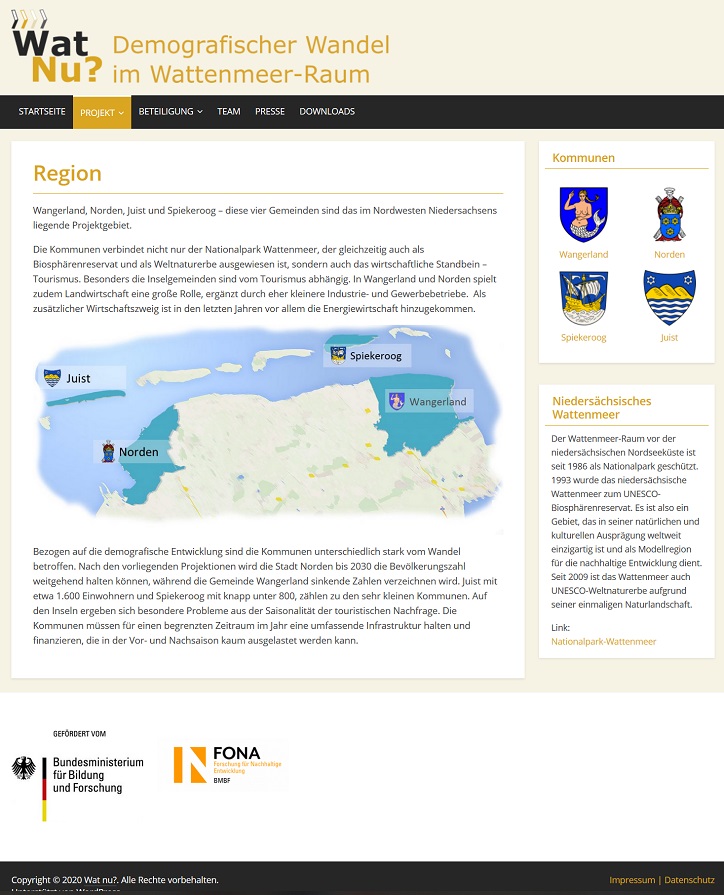
Wat Nu - Demographic Change in the Wadden Sea Region
The main goal of the project is to develop and initiate approaches dealing with demographic change in the participating municipalities. With the help of various participative and collaborative methods and instruments, we want to work towards this goal in collaboration with people who are interested in sustainable living in the region. We create the space for this with the help of the conceptual approach of real laboratories. In this we have the opportunity for an open discussion about the problems, but also about the opportunities of demographic change.
Duration: June 2016 - May 2019
Partner: WSF, Municipality of Wangerland, Norden, Spiekeroog, Juist, University of Oldenburg and Groningen, Arbeitsgruppe für regionale Struktur- und Umweltforschung GmbH
Website: http://www.wat-nu-im-watt.de (no longer existing)
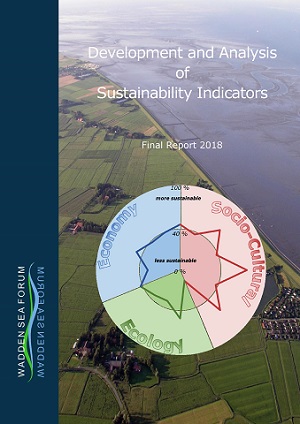
Development and Analysis of Sustainability Indicators
Duration: 2015 - 2018
Partner: Universities Tilburg and Waddenacademie (NL), University Kiel
see more information under topics/core-issues/sustainability-indicators
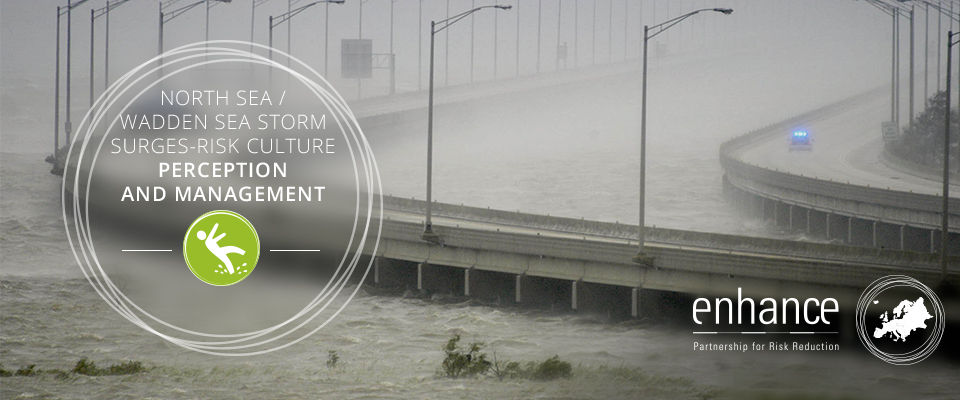
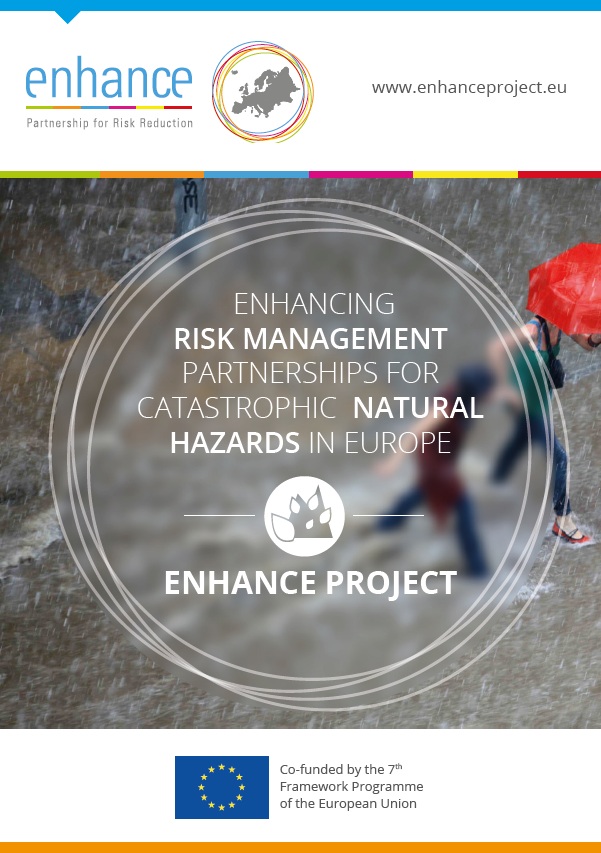
Enhance - Enhancing risk management partnerships for catastrophic natural hazards in Europe
ENHANCE aims at developing and analysing new ways to enhance society’s resilience to catastrophic natural hazard impacts. For this, the project developed new multisector partnerships (MSPs) between public and private sectors, with an important role for the financial sector (e.g. insurers). The hazards were related to heat waves, forest fires, flood, drought, storm surge, and volcanic eruptions. Through close engagement of stake holders and policy organisations, ENHANCE developed MSPs in 10 case studies for managing risk from natural hazards.
Duration: Dec 2012 - Nov 2016
Partner: WSF, FEEM + ARPA-ER (Italy), HZG + UP + PPC (D), IIASA + ORT (Austria), LSE + UOXF + UCAM (GB), UNISDR (CH), UCL + EBN (Belgium), ISA-CEABN + MC (Portugal), UPVLC + ADV (Spain), HKV + IVM (NL), ASE (Romania), HI (Iceland)
see more information under topics/projects/enhance 2012-2016
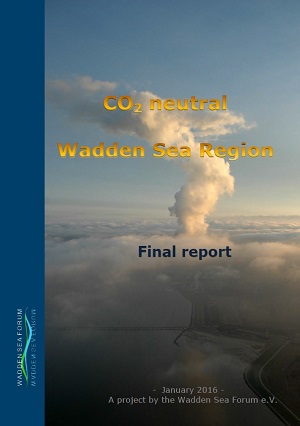
CO2 neutral Wadden Sea Region
To develop the Wadden Sea region by 2030 into a CO2-neutral region is an ambitious goal, which needs the support of the entire region with their industry associations, environmental and conservation organizations and social institutions as well as the local and regional politicians. The project concretely followed the principles of Integrated Coastal Zone Management. It was aimed at a comprehensive perspective that includes the ecosystem approach and economic activities with impact on the Wadden Sea Region by elaborating measures, which contribute to the development of climate-friendly WSR, including the preservation of natural and cultural landscape.
Duration: 2013 - 2015
Partner: WSF, Umweltbundesamt (BMU)
see more information under topics/energy transition
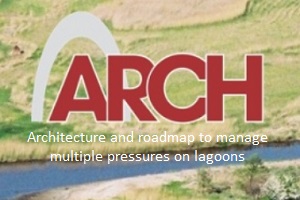
ARCH - Architecture and roadmap to manage multiple pressures on lagoons
Duration: Sept 2011 - Aug 2015
Partners: WSF, NGI (Norway), TNO (NL), HAW (D), COWI + IVL (Sweden), IPMA (Portugal), GeoEcoMar (Romania), HCMR (Greece), UEA + CEFAS (GB), MIG (Poland)
Webpage: https://cordis.europa.eu/project/id/282748
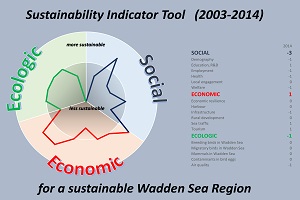
Sustainability Indicator Tool 2003-2014
With regard to contributing to a sustainable development in the Wadden Sea Region, the WSF has set up a tool to communicate the developments in sustainability with so-called indexes to the Forum members for discussing the developments, for politicians and decision-makers in the Wadden Sea regions and municipalities to know about the sustainability development trends. The tool will deliver annual information about the progress or regress of sustainability of the defined regions, including information about specific weaknesses and strengths.
Duration: 2003 - 2014
see more information under topics/core-issues/sustainability-indicators


